BYD Seal vs Mitsubishi Eclipse Cross – Which one offers the better deal?
Two cars, one duel: BYD Seal meets Mitsubishi Eclipse Cross.
Which one wins in performance, efficiency and value for money? Find out now!
Costs and Efficiency:
Price and efficiency are often the first things buyers look at. Here it becomes clear which model has the long-term edge – whether at the pump, the plug, or in purchase price.
BYD Seal has a slight advantage in terms of price – it starts at 40300 £, while the Mitsubishi Eclipse Cross costs 41100 £. That’s a price difference of around 857 £.
In terms of energy consumption, the advantage goes to the BYD Seal: with 15.40 kWh per 100 km, it’s minimal more efficient than the Mitsubishi Eclipse Cross with 16.70 kWh. That’s a difference of about 1.30 kWh.
As for range, the Mitsubishi Eclipse Cross performs slightly better – achieving up to 635 km, about 65 km more than the BYD Seal.
Engine and Performance:
Power, torque and acceleration say a lot about how a car feels on the road. This is where you see which model delivers more driving dynamics.
When it comes to engine power, the BYD Seal has a clearly edge – offering 530 HP compared to 218 HP. That’s roughly 312 HP more horsepower.
In acceleration from 0 to 100 km/h, the BYD Seal is convincingly quicker – completing the sprint in 3.80 s, while the Mitsubishi Eclipse Cross takes 7.90 s. That’s about 4.10 s faster.
In terms of top speed, the BYD Seal performs evident better – reaching 220 km/h, while the Mitsubishi Eclipse Cross tops out at 170 km/h. The difference is around 50 km/h.
There’s also a difference in torque: BYD Seal pulls significantly stronger with 670 Nm compared to 300 Nm. That’s about 370 Nm difference.
Space and Everyday Use:
Whether family car or daily driver – which one offers more room, flexibility and comfort?
Both vehicles offer seating for 5 people.
In terms of boot space, the Mitsubishi Eclipse Cross offers slightly more room – 487 L compared to 400 L. That’s a difference of about 87 L.
Who wins the race?
The BYD Seal proves to be outperforms in nearly all aspects and therefore becomes our DriveDuel Champion!
BYD Seal is the better all-rounder in this comparison.
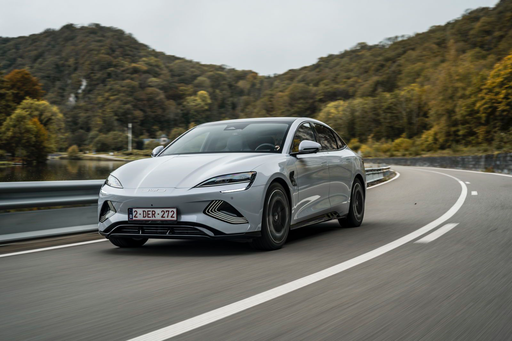 @ BYD Auto / BYD Global Media
@ BYD Auto / BYD Global Media
BYD Seal
BYD Seal
The BYD Seal is a sleek electric fastback that punches above its class with sporty looks and a surprisingly premium cabin, offering a very modern alternative for buyers who want style and substance without the badge snobbery. On the road it feels composed and eager, packed with tech and everyday practicality—ideal for shoppers after eco-friendly performance with a cheeky wink.
details @ BYD Auto / BYD Global Media
@ BYD Auto / BYD Global Media
 @ BYD Auto / BYD Global Media
@ BYD Auto / BYD Global Media
 @ BYD Auto / BYD Global Media
@ BYD Auto / BYD Global Media
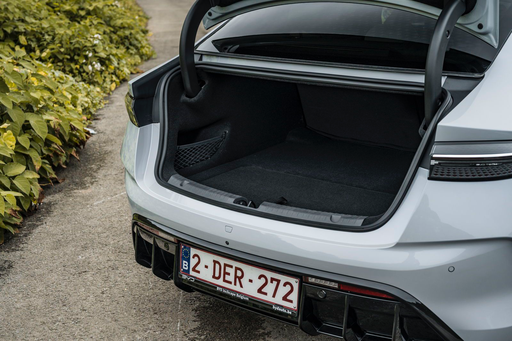 @ BYD Auto / BYD Global Media
@ BYD Auto / BYD Global Media
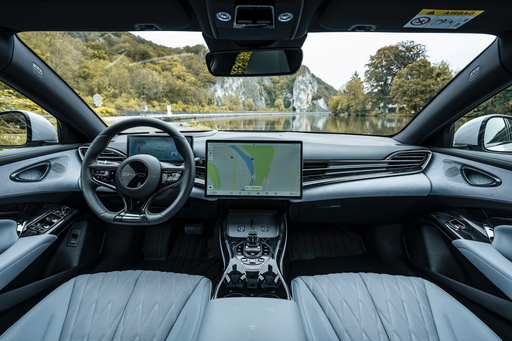 @ BYD Auto / BYD Global Media
@ BYD Auto / BYD Global Media
Mitsubishi Eclipse Cross
The Mitsubishi Eclipse Cross presents a sleek fusion of dynamic design and versatile functionality, perfect for urban adventures and weekend getaways alike. Its elegant lines and bold front grille make a strong statement on the road, while its well-appointed interior offers a comfortable and connected driving experience. With advanced safety features and intuitive technology, the Eclipse Cross ensures drivers feel secure and in control, whether navigating city streets or scenic routes.
details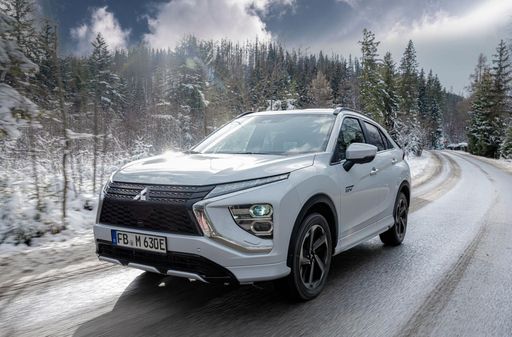 @ Mitsubishi Motors Corporation
@ Mitsubishi Motors Corporation
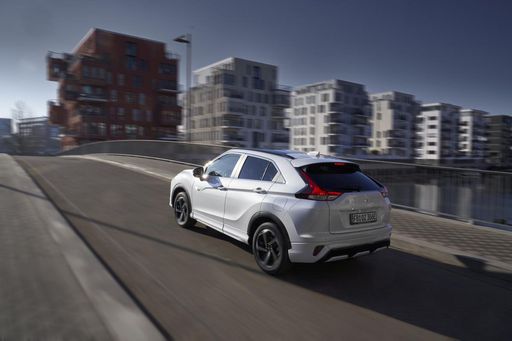 @ Mitsubishi Motors Corporation
@ Mitsubishi Motors Corporation
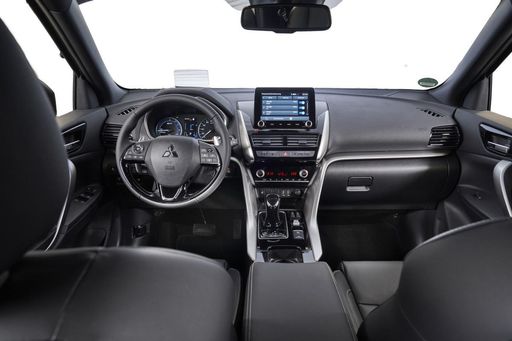 @ Mitsubishi Motors Corporation
@ Mitsubishi Motors Corporation
 @ BYD Auto / BYD Global Media
@ BYD Auto / BYD Global Media
|
 @ Mitsubishi Motors Corporation
@ Mitsubishi Motors Corporation
|
|
|
|
Costs and Consumption |
|
|---|---|
|
Price
40300 - 45400 £
|
Price
41100 - 48200 £
|
|
Consumption L/100km
-
|
Consumption L/100km
-
|
|
Consumption kWh/100km
15.4 - 18.2 kWh
|
Consumption kWh/100km
16.7 - 16.9 kWh
|
|
Electric Range
460 - 570 km
|
Electric Range
635 km
|
|
Battery Capacity
-
|
Battery Capacity
-
|
|
co2
0 g/km
|
co2
0 g/km
|
|
Fuel tank capacity
-
|
Fuel tank capacity
-
|
Dimensions and Body |
|
|---|---|
|
Body Type
Sedan
|
Body Type
SUV
|
|
Seats
5
|
Seats
5
|
|
Doors
4
|
Doors
5
|
|
Curb weight
1907 - 2185 kg
|
Curb weight
-
|
|
Trunk capacity
400 L
|
Trunk capacity
487 L
|
|
Length
4800 mm
|
Length
4489 mm
|
|
Width
1875 mm
|
Width
1908 mm
|
|
Height
1460 mm
|
Height
1571 mm
|
|
Max trunk capacity
-
|
Max trunk capacity
1670 L
|
|
Payload
446 - 473 kg
|
Payload
-
|
Engine and Performance |
|
|---|---|
|
Engine Type
Electric
|
Engine Type
Electric
|
|
Transmission
Automatic
|
Transmission
Automatic
|
|
Transmission Detail
Reduction Gearbox
|
Transmission Detail
Reduction Gearbox
|
|
Drive Type
Rear-Wheel Drive, All-Wheel Drive
|
Drive Type
Front-Wheel Drive
|
|
Power HP
231 - 530 HP
|
Power HP
218 HP
|
|
Acceleration 0-100km/h
3.8 - 7.5 s
|
Acceleration 0-100km/h
7.90 s
|
|
Max Speed
180 - 220 km/h
|
Max Speed
170 km/h
|
|
Torque
360 - 670 Nm
|
Torque
300 Nm
|
|
Number of Cylinders
-
|
Number of Cylinders
-
|
|
Power kW
170 - 390 kW
|
Power kW
160 kW
|
|
Engine capacity
-
|
Engine capacity
-
|
General |
|
|---|---|
|
Model Year
2023 - 2025
|
Model Year
2025
|
|
CO2 Efficiency Class
A
|
CO2 Efficiency Class
A
|
|
Brand
BYD
|
Brand
Mitsubishi
|
What drive types are available for the BYD Seal?
The BYD Seal is available as Rear-Wheel Drive or All-Wheel Drive.
The prices and data displayed are estimates based on German list prices and may vary by country. This information is not legally binding.
